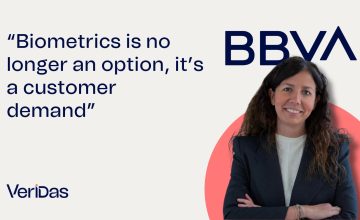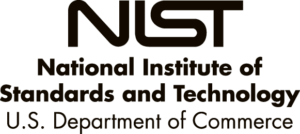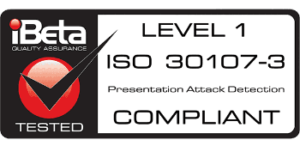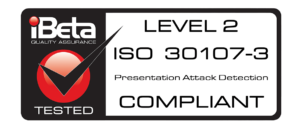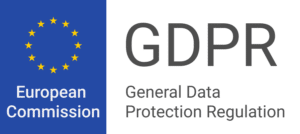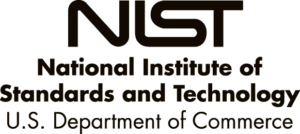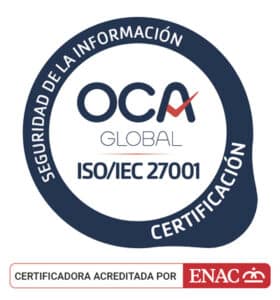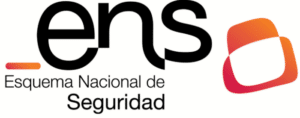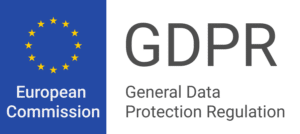KYC or Know Your Customer is a fundamental and mandatory practice for companies that need to know the identity of their users.
Given the extensive and increasing use of the internet and new technologies, companies increasingly need measures to combat and prevent fraud, as well as to establish a reliable and secure relationship between company and customer.
KYC comprises a series of methods focused on getting to know the end customer as deeply as possible, in order to offer a much more personalized and valuable service to each user.
What is KYC about?
It is often said that being able to trust the other party in a relationship is the cornerstone of business relationships.
KYC, broadly speaking, refers to the checking procedure that companies carry out to get to know their users before entering into a relationship with them and thus mitigate the possibility of building relationships with users who engage in illegitimate activities.
The first key step, which underpins the rest of the relationship, is the identity verification process. It is necessary to know with certainty the identity of the person behind the screen.
For this, automated digital onboarding processes based on Artificial Intelligence provide us the needed confidence to establish the complete KYC cycle.
Customer onboarding requires a scan of the identity document to check its authenticity and validity, followed by a biometric comparison between the photo of the document and a selfie of the user performing the process. In this way, in less than 1 minute, the customer is registered securely and easily from anywhere and at any time, without the need to visit a branch or office in person.
Once this first layer of trust is established, KYC includes other methods such as checking documents or invoices, analyzing information and other processes that allow companies to know whether the operation they are going to carry out with their users involves a greater or lesser risk, or simply to determine whether or not it is possible to carry out that operation, thus establishing a security framework.
KYC, as a tool, not only serves to protect companies from potential criminal actions that could jeopardize their business, but also protects customers from identity theft or the use of personal data.

How to do KYC verification
KYC verification involves several steps to ensure the authenticity of a customer’s identity and to comply with regulatory requirements. Let’s illustrate this process with a simple example:
- Collection of Information: The first step is to gather information about the customer. Suppose a person, John Smith, wants to open a bank account. John provides his personal details such as name, address, date of birth, and occupation to the bank.
- Document Verification: John submits identity documents like his driver’s license and proof of address, such as a utility bill. The bank verifies these documents to ensure they are legitimate and match the information provided.
- Biometric Verification: Some institutions may require biometric verification for added security. In this step, John’s biometric data, such as facial recognition, is captured and compared with the documents provided to confirm his identity.
- Risk Assessment: The bank assesses John’s risk profile based on his occupation, transaction history, and other factors. This helps the bank determine the level of scrutiny needed for his account.
- Continuous Monitoring: After the account is opened, the bank continuously monitors John’s transactions for any suspicious activity, such as large cash deposits or frequent international transfers.
By following these steps, the bank ensures compliance with KYC regulations and reduces the risk of financial crimes like money laundering or terrorist financing. This example demonstrates how KYC verification safeguards both financial institutions and their customers.
What are KYC documents for a bank?
KYC documents required by banks are essential for verifying the identity and personal details of customers. Let’s break down the typical KYC documents with an example:
- Proof of Identity (PoI): This includes government-issued documents that confirm the customer’s identity. Examples are a passport, driver’s license, or national identity card. Suppose Sarah, a new customer, wants to open a bank account. She presents her driver’s license as proof of identity.
- Proof of Address (PoA): These documents confirm the customer’s residential address. Utility bills, rental agreements, or bank statements are commonly accepted. In Sarah’s case, she provides a recent utility bill showing her address.
- Photograph: A recent photograph of the customer is often required for identification purposes. Sarah submits a passport-sized photograph as part of her application.
- Permanent Account Number (PAN) card: In some countries, like India, customers may need to provide their PAN card, which is a unique identification number issued by the government for taxation purposes.
- Additional Documents: Depending on regulatory requirements or the bank’s policies, additional documents may be requested. These could include proof of income or occupation, such as pay stubs or tax returns.
By collecting and verifying these KYC documents, banks can ensure the legitimacy of their customers and comply with regulatory standards, reducing the risk of fraudulent activities and enhancing trust in the banking system.
Is KYC required for every bank account?
KYC (Know Your Customer) is typically required for every bank account, regardless of the type of account or the financial institution. This process ensures that banks have verified the identity and legitimacy of their customers, helping to prevent financial crimes like money laundering and terrorist financing.
For example, let’s consider Maria, who wants to open a basic savings account at a bank. Even though it’s a simple account with limited features, the bank still requires Maria to undergo KYC procedures. She needs to provide documents such as her government-issued ID and proof of address.
By completing the KYC process, Maria establishes her identity to the bank’s satisfaction, allowing her to open the account and conduct financial transactions securely. This illustrates how KYC is a standard procedure applied uniformly across all types of bank accounts.
KYC regulations and compliance
Today, the market is governed by all kinds of regulations to which companies must submit. But in this case, what is the reason or the objective?
KYC, or Know your customer, emerged with the aim of complying with the requirements and regulations in force in relation to the fight against fraud, established mainly to avoid practices such as money laundering (AML) or the financing of terrorism.
This has been a reality for some years now, especially in the banking sector, which is obliged to carry out exhaustive analyses when incorporating new clients, given their propensity to be the focus of fraudulent conducts.
However, it is also applicable to other industries, such as fintechs or insurance companies, as they are all susceptible to criminal actions.
However, it is important to note that the KYC procedure does not refer and should not be considered as a simple collection of information, but refers to the assessment of a customer’s risk profile, that are obliged to comply in the financial sector, by obligation of the worldwide reference regulations; GDPR (General Data Protection Regulation), AML5 (Fifth European Anti-Money Laundering Directive) and eIDAS (EU Regulation Nº 910/2014 on electronic identification and trust services for electronic transactions in the internal market).
Not all KYC providers are the same
The solutions developed by Veridas include fraud prevention techniques, anti-spoofing, guaranteeing a totally reliable and secure KYC process with the best user experience, while complying with current regulations.
Furthermore, it is worth noting that during our fully automated verification process, not only basic identity information is checked, but it is also possible to check the presence on international PEP (Politically Exposed Person) lists, adverse media watch lists and government databases.
And What do we mean when we say that our processes are fully automated?
We refer to the fact that all those customer onboardings that were previously done manually and were so time consuming, are now done in an optimized way, reducing time, costs and increasing satisfaction, as well as user experience.
In short, KYC automation is an advantage in many ways and aspects and is linked to the rise of technology, which is no longer a novelty but a necessity.
In conclusion, we can say that Know Your Customer, whether to secure information exchanges and enable trusting relationships between actors in all types of business sectors, to fight against fraud or to comply with regulations, is a necessity for all companies today.








![[FREE DEMO]: Find out how our technology works live](https://19918211.fs1.hubspotusercontent-na1.net/hubfs/19918211/hub_generated/resized/f770d62b-967f-4278-a6f7-468b5ef908df.png)


